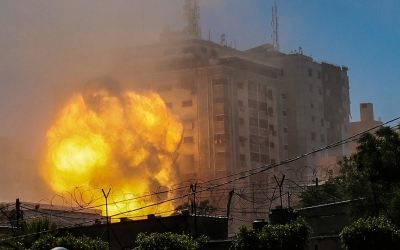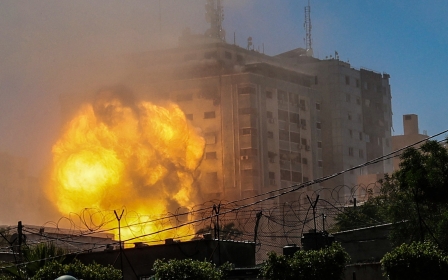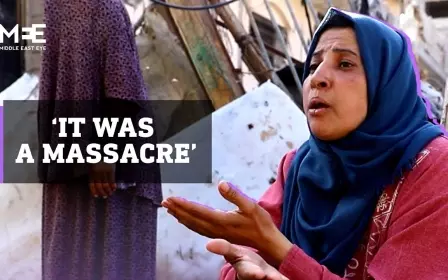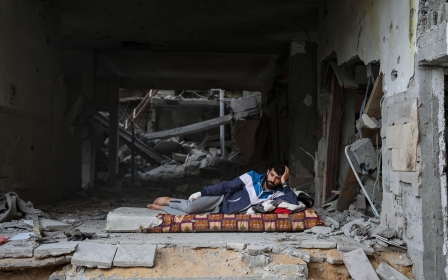Israel-Gaza: Pilots bombed Palestinian buildings to 'vent frustration', says report
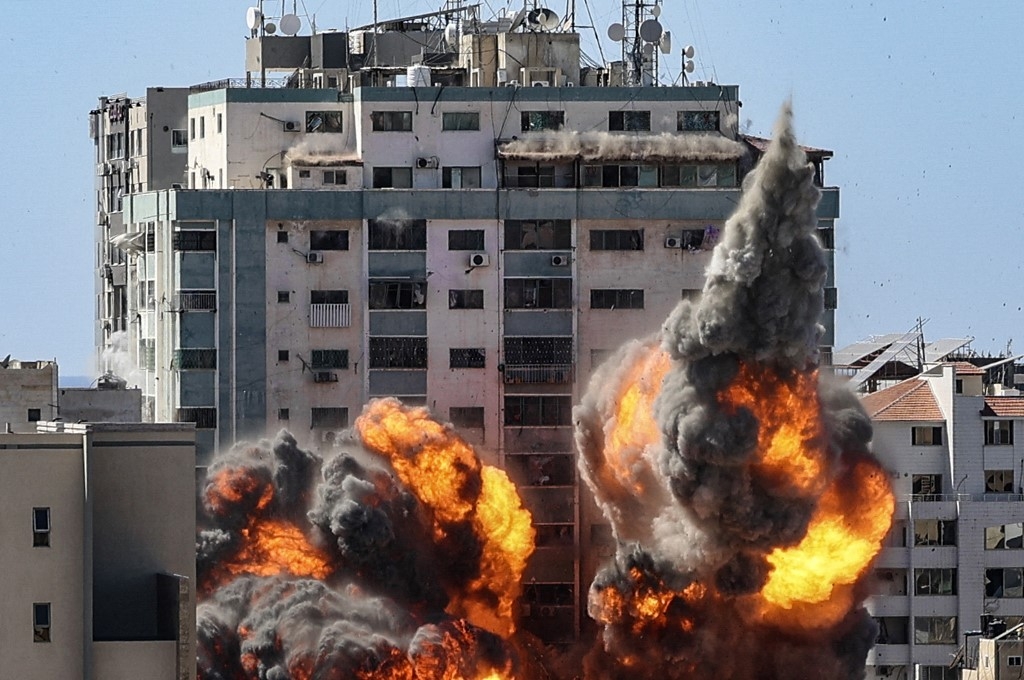
Israeli air force pilots’ bombing and flattening of Palestinian residential towers in the besieged Gaza Strip in its military offensive earlier this month was a way to vent their frustration for failing to stop Palestinian armed factions from firing rockets into Israeli towns, according to an Israeli TV report.
A number of Israeli pilots spoke anonymously to Israel's Channel 12 last week about their experience flying warplanes over the Palestinian enclave during an 11-day military campaign that ended with a ceasefire on Thursday evening.
New MEE newsletter: Jerusalem Dispatch
Sign up to get the latest insights and analysis on Israel-Palestine, alongside Turkey Unpacked and other MEE newsletters
In total, Israeli air strikes killed 248 Palestinians in Gaza, including 66 children, between 10 and 21 May, and wounded 1,948 others, the Gaza health ministry has reported.
Nine high-rise buildings were flattened to the ground by Israeli air strikes, including al-Jalaa tower, which housed the offices of numerous media production companies and news agencies, including the Associated Press, Al-Jazeera and Middle East Eye, drawing condemnation from media and human rights organisations.
"I went on a mission to carry out air strikes with a feeling that destroying the towers is a way to vent frustration over what is happening to us and over the success of the groups in Gaza,” one Israeli pilot told Channel 12.
The pilot, identified as Major D in the report, added: “We failed to stop the rocket fire and to harm the leadership of these groups, so we destroyed the towers.”
Israel has said that Palestinian armed factions in the Gaza Strip had launched almost 4,000 rockets, which killed 12 people and injured hundreds in Israel, before a ceasefire was reached at 2am local time on Friday.
The Egyptian-brokered ceasefire was declared between Israel and Palestinian factions in the Gaza Strip, including Hamas and Islamic Jihad.
Middle East Eye delivers independent and unrivalled coverage and analysis of the Middle East, North Africa and beyond. To learn more about republishing this content and the associated fees, please fill out this form. More about MEE can be found here.


